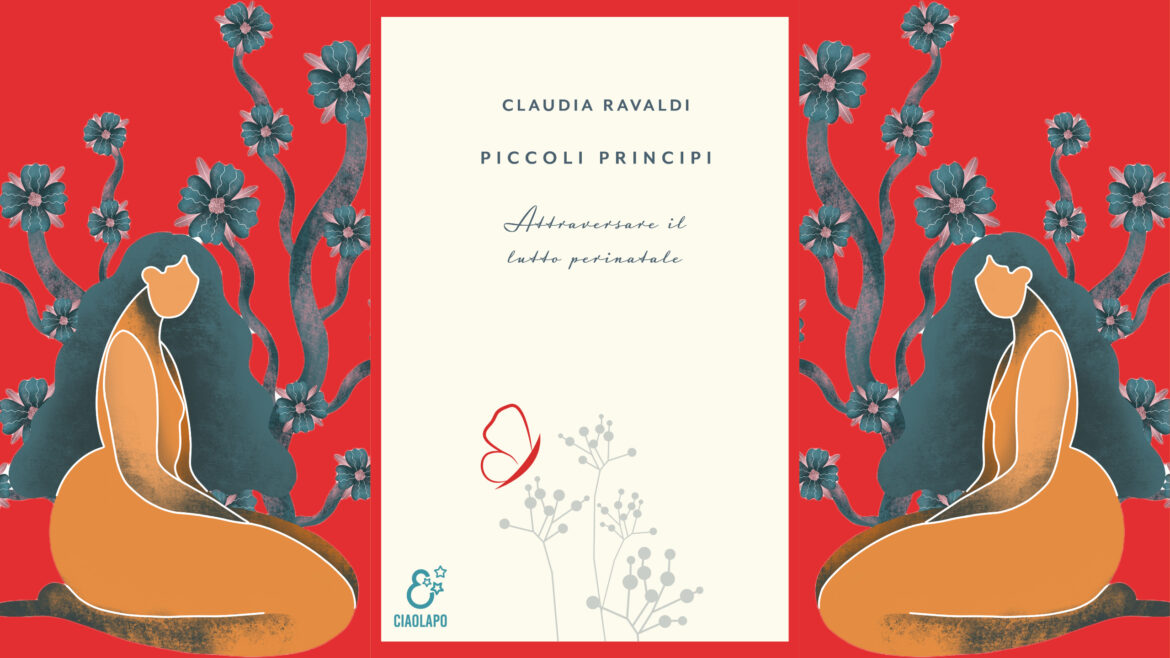“To our children never quite lost.
To the journey to be made, to find them, in the heart.”
It is with much joy that I present to you the fourth edition of Little Princes, the self-help and psychoeducational book designed to go through perinatal grief and then flourish, again.
Perinatal bereavement is the complex, psychic, physical and social experience that people go through when they lose an expected child, either during pregnancy or after birth. Grief can manifest as mental grief, physical grief, “relational grief,” or, more often, in all three forms, alternating with each other.
The intensity of mourning, contrary to what is still thought in our culture, is not affected by the gestational age of the lost child, his or her health condition or illness, or whether or not he or she chose to terminate the pregnancy for medical, maternal or fetal reasons. The intensity of mourning depends on the bond the woman and the couple have established with that child.
The first edition of Little Princes was born in 2007: it was only 32 pages, enclosed in a sugar-paper-colored cover, aimed at those who were going through the experience of loss during pregnancy or after birth and consequently experiencing the distressing psychic, physical, and social experience of perinatal grief.
There was already room in those 32 pages for bereavement from miscarriage, abortion due to maternal or fetal pathology, intrauterine death, death after birth, loss of one or more twins during multiple pregnancies, death from premature birth, and also for loss during medically assisted procreation. Different lives, different clinical histories, different families are thus united by the intimate experience of grief, which has its own ways of manifesting and its own rules for being processed. Ways and rules are dictated largely by the fact that we are mammals, we have mammalian brains that foster attachment to offspring and the development of primary care, right from pregnancy. Our brain is very good at registering the absence of the child who used to be there and then is not, and it takes a long time to put all the pieces back together after the loss.
Small Principles is a psychoeducation and self-help book that has two goals:
explain what it is
You will look at the stars, the night. It’s too small for me to show you where it is
MY STAR. It is better that way. My star will be for you one of the stars. So, all the stars, you
Will enjoy looking at them… All of them, they will be your friends. And then I want to give you a gift…”
“When you look at the sky, at night, since I will dwell in one of them, since I will laugh.
in one of them, then it will be for you as if all the stars are laughing. You will have, you alone, stars
Who can laugh!”
“And when you have consoled yourself (there is always consolation), you will be happy to have met me.
you will always be my friend. You will feel like laughing with me. And you will open the window sometimes, like this,
for pleasure… And your friends will be amazed to see you laughing while looking at the sky.
Antoine de Saint Exupéry, The Little Prince
The first two editions of Little Princes (one with a sugar paper cover, one with a yellow cover) were self-published and were donated to hospitals and counseling centers: we distributed over twenty thousand copies.
In the third edition, the pages grew to 98 and were enriched with valuable testimonies from other women and couples with experience of perinatal bereavement. The third edition was produced in collaboration with Officina Grafica editorial: we have distributed in eight years about ten thousand copies of Small Principles offers clear and realistic information about perinatal grief and the most common experiences of bereaved people, with the aim of facilitating reflection on and identifying the most useful strategies for coping with the painful reality of losing a child during pregnancy or after birth.
Thinking about a pregnancy starts the path of “parenthood”, during which the couple develops and experiences specific emotions and thoughts about the new baby. This path called the attachment process is intrinsic to every pregnancy, it is cross-cultural. When the pregnancy is interrupted with the death of the child this path is abruptly less, leaving the woman and often the couple the task of reorganizing reality and the future differently from what was expected and hoped for.
There are many parents forced to deal with this event. It is very important that those who suffer from bereavement have sufficient time and a protected place from the beginning, so that they can recognize their most important needs, obtain appropriate support at all levels of care.


